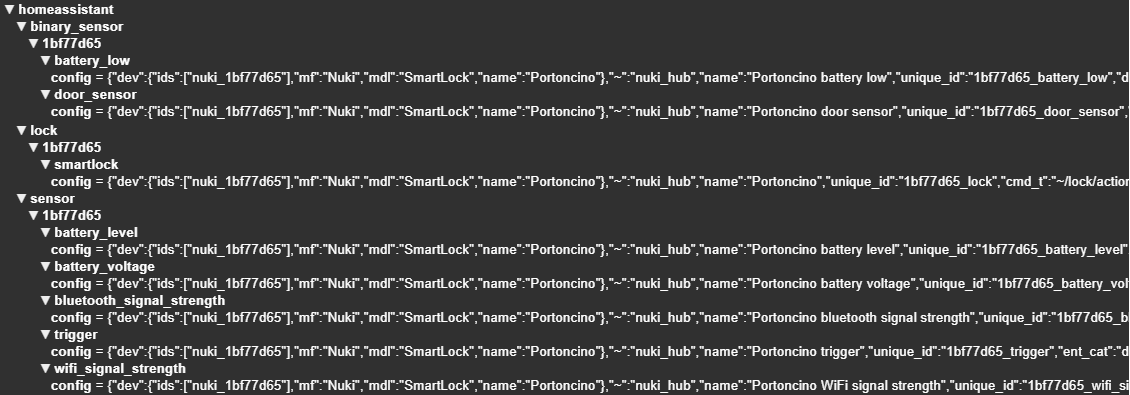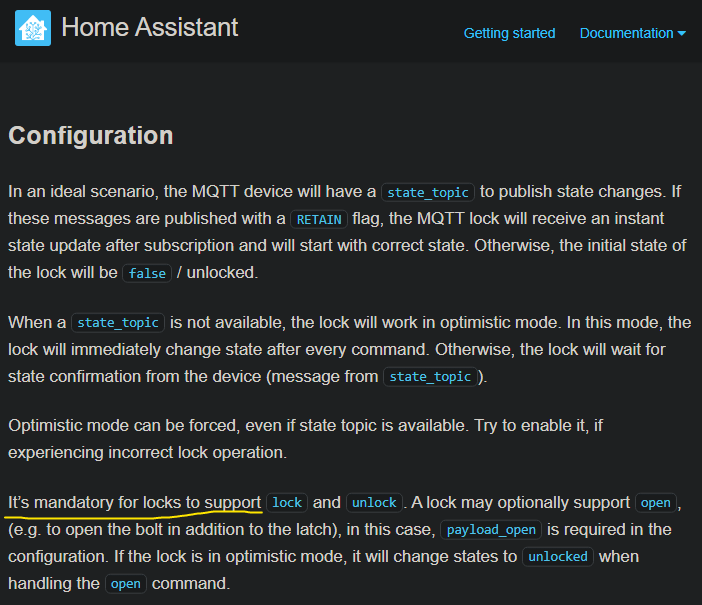Hello,
Following to @Juergen asked for, this topic is some requirements about the MQTT autodiscovery requirements for Home Assistant.
Firstly, the documentation: MQTT - Home Assistant
By reading MQTT API specifications V1.3, in the final stage MQTT wil be configured in the app with Wi-Fi settings.
To make Nuki auto-discovered working for all types of configuration, another field should be added to set the Home Assistant topic because it can be changed in MQTT settings.
Durring the beta it look like only Home Assistant default settings could work, with the topic prefix homeassistant.
Basically, a binary sensor for the door sensor state and of course the lock should be discovered, locks are supported.
An example of discovery topic for the lock: homeassistant/lock/lock_<lock_id>/config
Payload should include a command topic, a state topic and the lock name, for the door sensor with the suffix Door sensor for example.
All properties are here for lock and here for binary sensor.
Lock, unlock and open could be implemented.
The native integration also manage opener but because I don’t own one, it would be better if other users talk about it.
A binary sensor set to on when battery is critical would also be useful.
Because [buttons)(MQTT button - Home Assistant) are also compatible with MQTT in Home Assistant, a button for lock’n’go would be useful.
All sensors being attached to an MQTT device would simplify the placement to a room.
All these points might be just a beginning but I hop it could help about what could be expected for a native Home Assistant support.
My SL3P is still not mounted instead of my V2 but the moment it will be I will make some experiment to be able to post a configuration which could give an idea of the requirements.
I hop other people will complete this topic, for example @alexdelprete. And I hop I am not totally out of what you expected @Juergen ![]()


